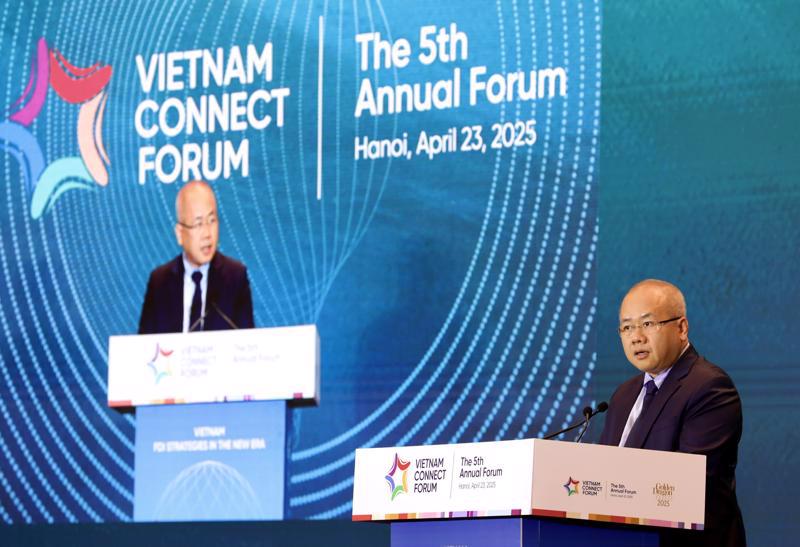With 42,760 valid foreign direct investment (FDI) projects, and a total capital of $510 billion registered in Vietnam, accumulatively as of the end of March this year, the country ranks among top 15 countries worldwide in attracting FDI, according Deputy Minister of Finance Do Thanh Trung,
The deputy minister made the statement when addressing the Vietnam Connect Forum 2025 which was co-hosted in Hanoi on April 23 afternoon by Vietnam Economic Times (VET) and the Institute for Policy and Strategy (under the Party Central Committee’s Policy and Strategy Commission).
However, high-tech sector only accounted for about 5 per cent of the total FDI volume, far below expectations, according to Mr. Trung.
He told the forum that Vietnam can no longer rely on cheap labor or low energy costs to remain competitive, adding that the country needs to transit to a new phase of selective investment attraction, with a focus on high-tech projects that employ a skilled workforce and contribute to upgrading the value chain.
According to the deputy minister, a key pillar in enhancing the quality of FDI lies in domestic workforce. Vietnamese workers in FDI enterprises are among the most elite labor sources. Notably, many Vietnamese professionals have taken on key positions in the management structures of foreign enterprises. This demonstrates that Vietnam offers a favorable and suitable environment for FDI businesses.
Deity Minister Trung said that the Vietnamese government has identified institutional reform and administrative modernization as essential prerequisite, and that efforts will be made to accelerate the reform of tax, customs, and investment-related administrative procedures, with a focus on automation, digitalization, transparency, and reducing compliance costs for businesses.









 Google translate
Google translate